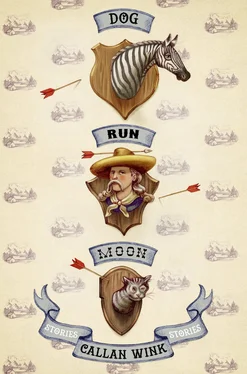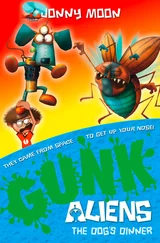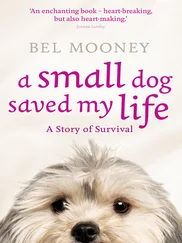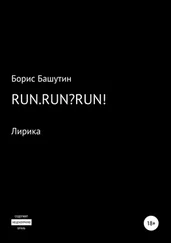“Night,” August said, getting up to go inside.
His father yawned and stretched. “Night,” he said.
Later, his parents’ arguing had kept him awake, and the next morning his father hadn’t rousted him for the morning milking — and soon after that Lisa was always around, and not long after that his mother had started spending time at the old house. At first, just a few nights a week, and then one morning she didn’t come back to make breakfast and his father burned the toast and slammed the door on his way to the barn.
—
August tied his boots. He climbed up to the haymow and surprised two cats that had been intently pawing at a dead sparrow on the hay-littered floor. He broke one’s back with a quick chop of the wrench, and stunned the other one with a jab to the head. The cats were indistinct as they writhed, blurred in the gloom. August silenced their yowling, each with a sharp blow from the wrench, and then gave chase to a few more slinking forms that eluded him by leaping to join their wailing, spitting clan in the rafters.
August didn’t curse much. His father always said that no one took a man seriously who cursed too much, and it was better to be the type of man who, when he did curse, made everyone else sit up and take notice.
Now, however, in the dark barn with the hay dander swirling around his face, and the cats twitching and seething out of reach above him, he cursed.
“Motherfucker,” he said. “Motherfucking, cocksucking, shitfaced, goddamn fucking cats.”
It was the most curse words he’d ever strung together, and he hoped the cats were sitting up to take notice, trembling at the rain of fire that was about to be visited down upon their mangy heads.
—
At the old house his mother had the blinds drawn. She had cut a ragged hole in a quilt, pulled it over her head, and belted it around her waist, poncho style. Her arms stuck out, bare, and the quilt ends dragged over the floor when she got up to let him in. With the shades drawn, it was dark. She had lit an old kerosene lamp and the flame guttered, sending up tendrils of black smoke. She had been playing solitaire. There was a fried pork chop steaming in a pan on the table.
“You want some lunch?” she said after she had settled herself down in her chair, smoothing the quilt down under her and over her bare legs. “I’m finished. You can have the rest.”
She slid the pork chop over to August. It hadn’t been touched. He took a bite. It was seared crispy on the outside and juicy and tender on the inside, quick fried in butter and finished in the oven. That’s how she always made pork chops. Lisa wouldn’t know how to do this, he thought. His father would get so fed up with dried-out tough pork chops that he might send her away, and his mother might come back to the new house and he’d start helping his dad with the barn chores again.
“Are you still not eating?” He picked up the pork chop to gnaw at the bone where the best tasting meat always lived.
“Augie, that’s a common misconception about us breatharians. I eat. Good lord, I eat all the time. Here, actually, let me have one more bite of that.” She leaned over and wafted her hand around his pork chop, bringing the smell toward herself, and then took a quick, hiccupping little breath and smiled and leaned back in her seat. “Meat from an animal you know always has the best flavor,” she said, lighting one of her little cigars. “That’s something city people probably don’t understand. You remember taking kitchen scraps out to that hog every night after dinner? You fed that animal and now it feeds you. That lends a certain something to the savor — I’m sure there’s a word for it in another language.”
She pulled her quilt tighter around her shoulders. “Did you know that, Augie? That there are all sorts of words for things in other languages that we don’t have in English? It’s like your soul is tongue-tied when that happens, when you have a feeling or experience that you can’t explain because there isn’t a specific word for it. If you knew all the languages in the world, you could express yourself perfectly and all experiences would be understandable to you because you would have a word, a perfect word, to attach to any possible occasion. See what I mean?”
August wiped his greasy hands on his jeans. He was fairly certain his mother was naked under her quilt. He wondered if there was a word for that in another language. A word to classify the feeling you get sitting across from your mother, eating a pork chop, with your mother naked under a quilt.
“I don’t know,” he said. “Just because you have a word to put on something doesn’t mean you understand it any better. Does it?”
“Oh, I think so. Definitely. I don’t think things really exist until we can name them. Without names for every living thing, the world is populated by spooks and monsters.”
“Just because you give something a name doesn’t mean you change what it is. It’s still the same thing.”
“You couldn’t be more wrong, Augie dear. How about death?”
“What about it?”
“What if instead of death everyone called it being born and looked forward to it as the great reward at the end of seventy or so years of slow rot on earth?”
“That doesn’t make any sense. Why would anyone look forward to death?”
“Maybe you’re too young for this conversation,” she said, coughing into the back of her hand. “That’s an interesting thought. I bet in some language there is a word for the state you exist in now — the state of being incapable of formulating concepts of, or discussing abstractly, death in all its various forms, due to a lack of experience. You need to have someone you love die, and then you get it. All the understanding of the world comes rushing in on you like a vacuum seal was broken somewhere. I’m not saying you’ll ever understand why the world works the way it does, but you’ll surely come to the conclusion that it does work, and that, as a result, it will absolutely someday come to a grinding halt, as nothing can work forever. See what I mean?”
“No.”
“Huh. Well, in time you will. I’m sure.”
She picked up her solitaire game and shuffled the cards, splitting the deck, riffling the ends together with a brisk splat, and then condensing the deck back together by making the cards bow and bridge and shush into one. August sat listening, enjoying the sound of her shuffling, thinking, knowing she was wrong. He had loved someone who had died.
“How’s the job coming?”
“Not great.”
“Motivational issues?”
“No. They’re just fast. I’ve been thinking about a change of tactics.”
“Oh, yeah?”
“I don’t know if it will work. Can I borrow some bowls?”
—
Lisa stayed for dinner again. August sensed that his life was now split in two distinct pieces. There was the part when Skyler was alive, when his father and mother and he had all lived in the new house, and now, this new part, where things were foggy and indistinct. August twirled Lisa’s spaghetti around on his fork and realized, for the very first time, that the whole of his life up until this very point existed in the past, which meant it didn’t exist at all, not really. It might as well have been buried right there in the pasture next to Skyler.
—
It was dark and cool in the barn and he switched on the radio for company. August hadn’t been able to sleep, and he’d risen early — before Lisa, even — and he hadn’t had breakfast and his stomach rumbled as he climbed the wooden ladder up to the haymow. In the darkness he could see the faint pinpricks of stars through the knotholes and chinks of the barn planks, and then his groping fingers found the pull chain and the haymow was flooded with fluorescent light.
Читать дальше












